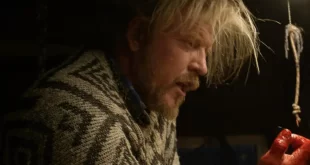 Arnaldo Lopez, Jr. has been an employee of the Metropolitan Transportation Authority of New York for twenty-eight years and was formerly employed as a dispatcher with the NYPD. Mr. Lopez is also a speaker and trainer, handling subjects as diverse as terrorism and customer service. He created the civilian counter-terrorism training program currently in use by New York City Transit and many other major public transportation agencies around the country.
Arnaldo Lopez, Jr. has been an employee of the Metropolitan Transportation Authority of New York for twenty-eight years and was formerly employed as a dispatcher with the NYPD. Mr. Lopez is also a speaker and trainer, handling subjects as diverse as terrorism and customer service. He created the civilian counter-terrorism training program currently in use by New York City Transit and many other major public transportation agencies around the country.
As well as writing, Mr. Lopez is an artist and photographer, having sold several of his works over the years. As a writer his articles have appeared in Railway Age magazine, The Daily News magazine, Homeland Defense Journal, and Reptile & Amphibian magazine; scripts in Little Archie and Personality Comics; and short stories in Neo-Opsis magazine, Lost Souls e-zine, Nth Online magazine, Blood Moon magazine, and various other Sci-Fi and/or horror newsletters and fanzines. He was also editor of Offworld, a small science fiction magazine that was once chosen as a “Best Bet” by Sci-Fi television. Chickenhawk is his first novel.
Congratulations on the release of your first book, Chickenhawk. Please tell us about it.
My novel, Chickenhawk, is about a basically ordinary man who leads a double life as an avid customer of the young, male prostitutes who ply their trade throughout the mean streets of Manhattan. His relatively comfortable existence is threatened and his life is turned upside down when he believes that he has contracted the AIDS virus from the prostitutes that he regularly solicits. His growing guilt and madness turn him into a killer of those selfsame prostitutes, and now it becomes the job of the elite detectives of Manhattan North Homicide to stop him.
What was your inspiration for it?
While working as a token booth clerk at night for the New York City subway, I couldn’t help but watch the nocturnal comings and goings of the young, male prostitutes, their johns, and the cops as they all went about their business in my station and around the neighborhood. Couple that with real-life newspaper articles or television news stories about the rise of HIV/AIDS among heterosexual, married women in the suburbs, and I felt that I had a compelling story of my own to tell.
 Did your book require a lot of research?
Did your book require a lot of research?
Actually, yes it did. I’m a stickler for keeping things as authentic as possible, so I often drove to the locations that I mention or describe in my novel to make sure that I described them properly. I also hung out at a nearby police precinct, spoke to police officers and detectives, and with employees of the District Attorney’s office. I also spoke at length with the president of and a member of a gun collector’s club in order to get the inside and intimate detail of the particular gun my antagonist is using. Of course, I also spoke to the prostitutes themselves.
How do you keep your narrative exciting?
I try to keep the prose breezy and moving. I use a lot of communication, dialogue between the characters, to keep the reader interested and invested. I also try to end as many chapters as possible on a cliffhanger. The reader becomes engaged and wants to know what happens next … and who can blame them?
Many writers experience a vague anxiety before they sit down to right. Can you relate to this?
No, not really. I generally have a good idea of what I want to say in any particular chapter and I try to remain true to that immediate vision. Besides, once I have a general idea of location, conflict, and time of day, the characters take off and do their own thing. Sometimes I find myself having to rein them in.
Do you have a writing schedule? Are you disciplined?
A writing schedule? No, I’m no where near that disciplined. My writing process is very rough and tumble. I write on the subway to and from work, on the bus, at home in bed … I might decide to write at the spur of the moment or I might set it aside for months. Sometimes I may put away a current writing project and work on something completely different!
How do you define success?
Ultimately I define success as the acceptance and appreciation of my work by my readers and peers. Now don’t get me wrong, money is a great incentive and motivator, and would sure come in handy! But to know that there are people out there that thoroughly enjoy my work and consider it worthy of their time and money really makes me feel that all my effort is worthwhile. To see my novel on a bookshelf or even better being read by a stranger on the subway would really count as success.
What is your advice for aspiring authors?
Write! If you’re a writer, then write! And don’t waste your time trying to write what you think others will like; listen to your muse. Finishing what you write is extremely important too. There are plenty of great manuscripts gathering dust or hidden away somewhere because their authors just never finished them.
[amazon template=iframe image&asin=B00XSKPFM2] Blogcritics The critical lens on today's culture & entertainment
Blogcritics The critical lens on today's culture & entertainment



